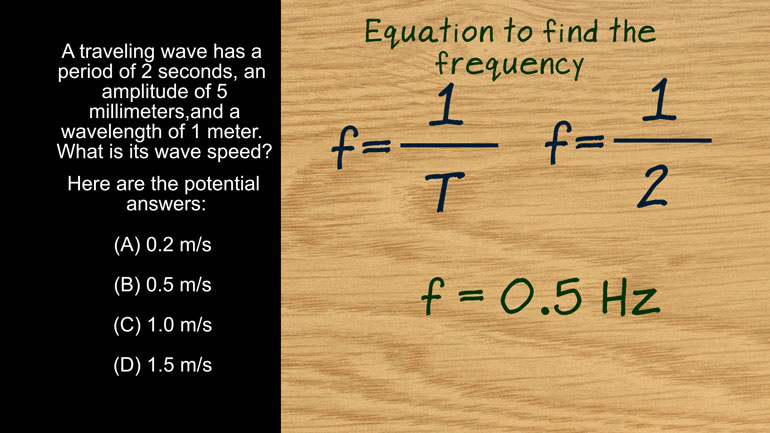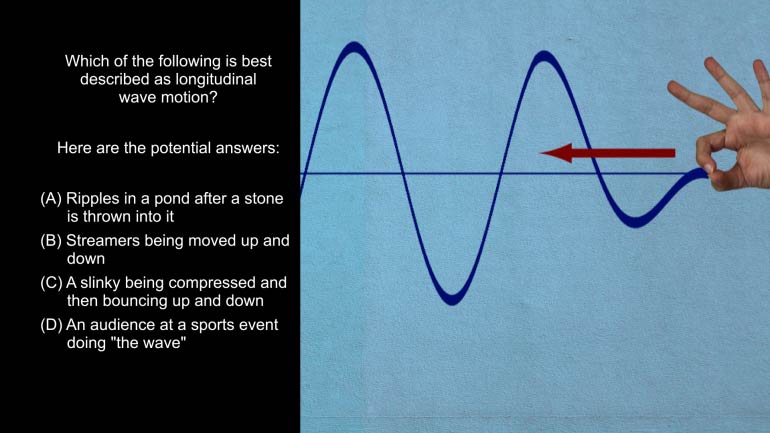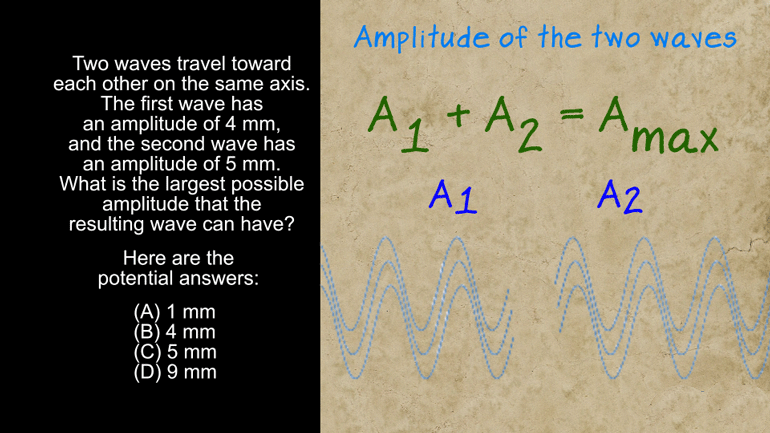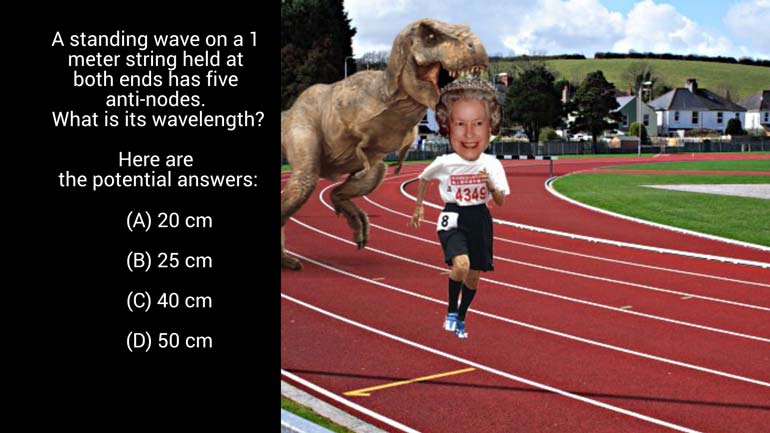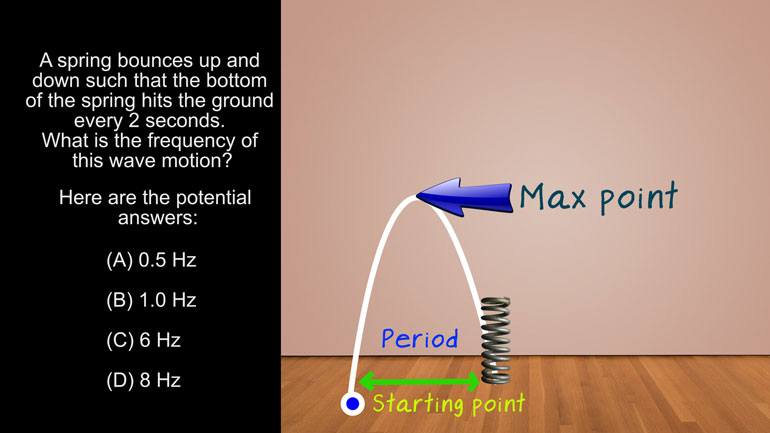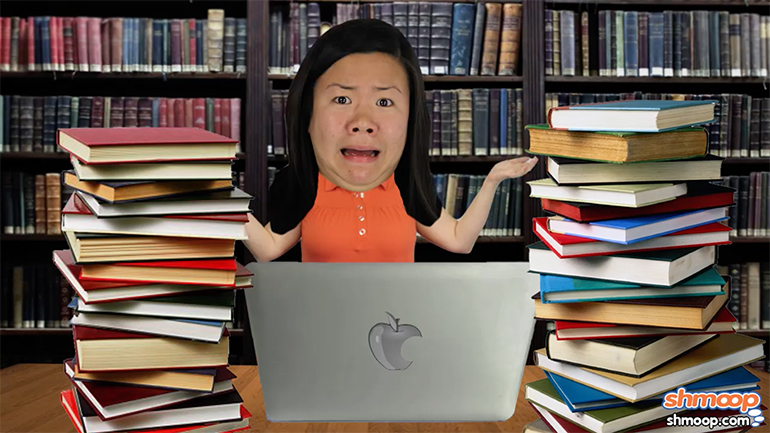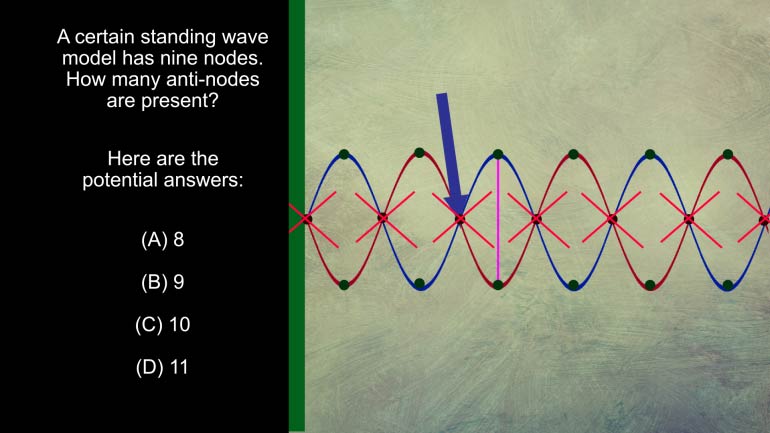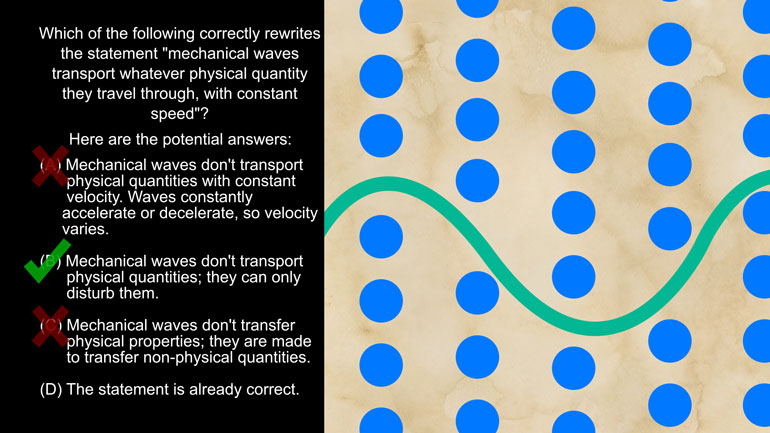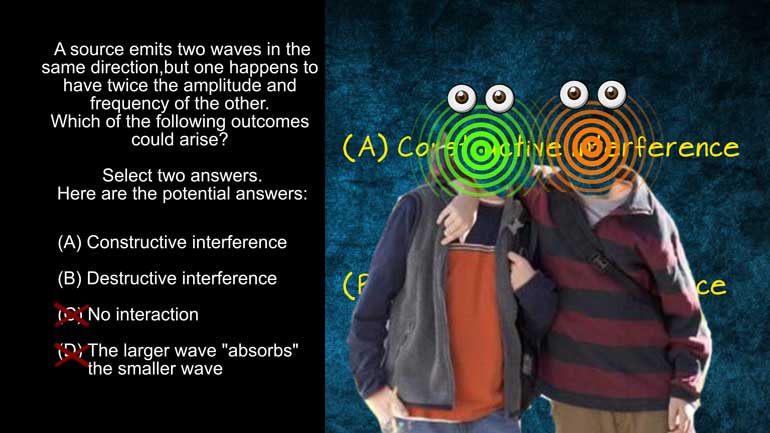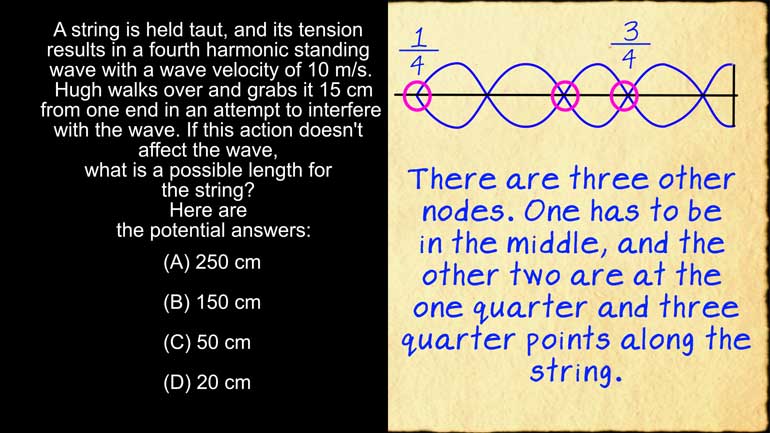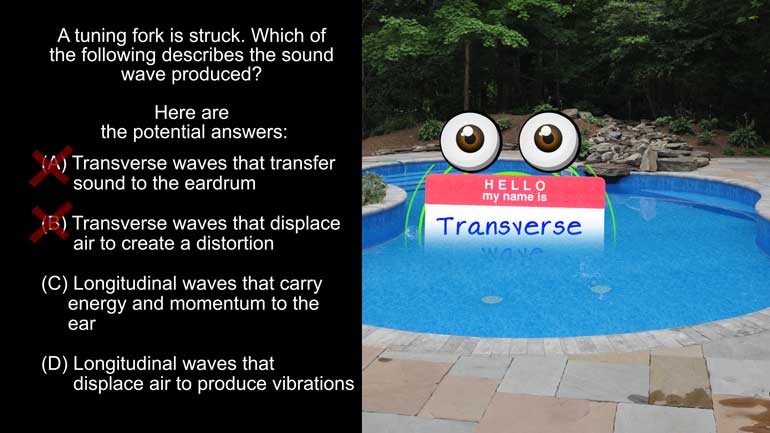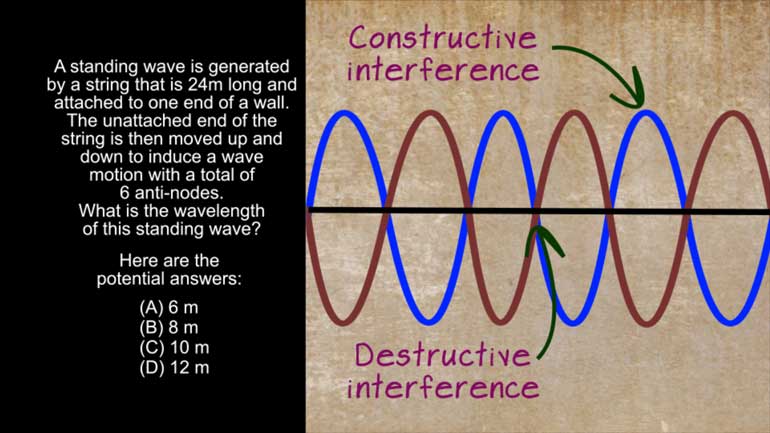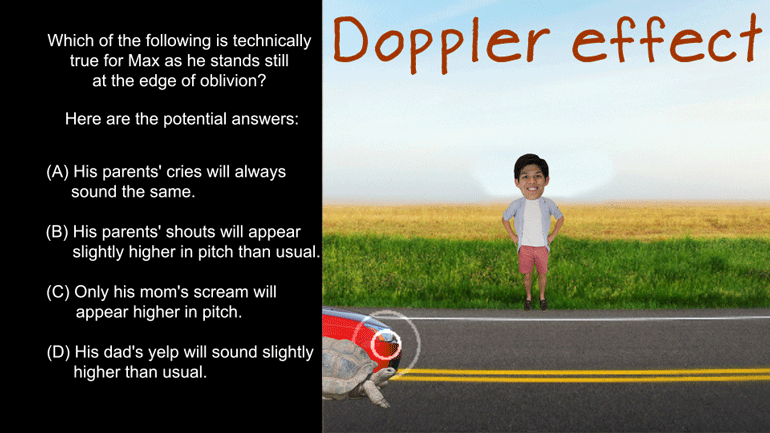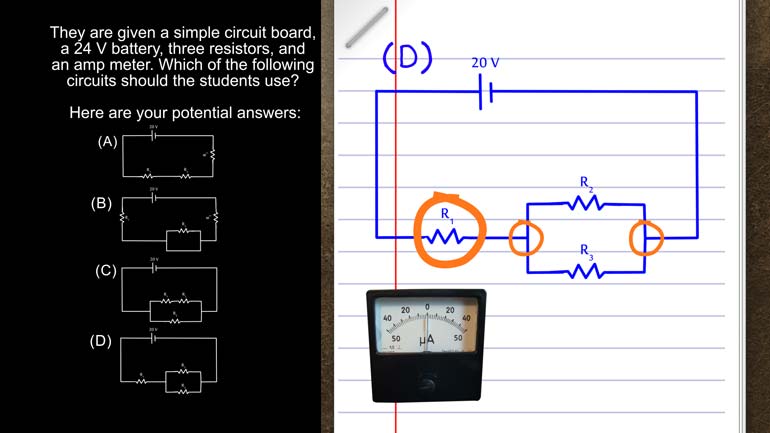ShmoopTube
Where Monty Python meets your 10th grade teacher.
Search Thousands of Shmoop Videos
Waves Videos 15 videos
AP Physics 1: 2.3 Waves. Which of the following is best described as longitudinal wave motion?
AP Physics 1: 2.1 Waves. What is the largest possible amplitude that the resulting wave can have?
AP Physics 1: 3.3 Waves 12 Views
Share It!
Description:
AP Physics 1: 3.3 Waves. How many anti-nodes are present?
Transcript
- 00:00
Thank you We sneak and here's your smoke too Sure
- 00:05
brought to you by nodes which on a standing wave
- 00:08
our points of complete stillness energy go through them That
- 00:11
causes no movement You know like us After two hours
- 00:15
of physics homework that's What happened A certain standing wave
Full Transcript
- 00:19
model has nine nodes How many anti nodes are present
- 00:23
and here Potential answer Already Ten eleven Let's take a
- 00:28
quick refresher course on standing waves A standing wave is
- 00:31
created when a wave generated at one end of a
- 00:33
medium is reflected back at the other end of the
- 00:36
medium the two waves aligned to create constructive in destructive
- 00:39
interference creating anti nodes of maximum displacement and nodes Where
- 00:43
there is no displacement eyes refreshing is ice water On
- 00:47
a summer day the starting point of a standing wave
- 00:49
is considered a node and the reflection point is also
- 00:52
a note This means that there was always one more
- 00:55
node than there are anti nodes in a wave so
- 00:59
if we have a wave with nine nodes than it
- 01:00
has to have eight anti nodes which means our answer
- 01:03
is a and we love questions like this It just
- 01:06
involved counting We canoe counting you know sometimes that's about
- 01:10
all we can do All right guys take off your 00:01:11.999 --> [endTime] shoes get your toes ready
Related Videos
AP Physics 1: 1.4 Waves. Which of the following is technically true for Max as he stands at the edge of oblivion?
AP Physics 1: 1.4 Changes and Conservation Laws. Find the current across R2.
AP Physics 1: 2.4 Changes and Conservation Laws. Which of the following circuits should the students use?
AP Physics 1: 1.5 Waves. What can possibly occur when the two waves reach each other?
AP Physics 1: 2.2 Waves. What's the wavelength of this standing wave?
